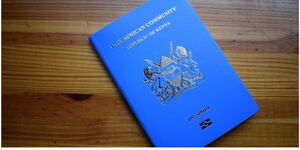A Kenyan lawyer who worked at the International Criminal Court (ICC) in the Netherlands ditched her training to follow her passion for cooking.
Speaking to Daring Abroad, Betty Bifwoli intimated that she was an advocate of the high court and had an illustrious career in Kenya before she moved to Holland in 2009.
The Moi University graduate boasts of working with several multinational organizations in line with her undergraduate training.
"Immediately after my pupilage, my husband got a job here and I moved in with him. I worked with the ICC, the Special Tribunal for Lebanon, and another organization but I felt like it was not my calling," she stated.
Bifwoli then followed her passion, cooking, which she admitted to using to bring people together. As with any other entrepreneur, her greatest support came from her friends.
"I started by cooking for my friends and they encouraged me to start the business. I registered my business and got a location four years ago," she stated.
With her backyard in the legal profession, she followed the right procedure of obtaining an operation license to set up her restaurant - Kenyan Delicacies.
When she set up shop, she was shocked by her clientele profile - the majority of them were Dutch including reputable politicians.
"My typical clients are local citizens from the nearby offices including the Parliament. They love chapati and beans: the Dutch love bread and the majority are vegetarian," Bifwoli disclosed.
The self-made chef sells local delicacies including ugali, pan-fried chicken and beef, fish, pilau, green bananas, and snacks such as mandazis and samosas.
A plate of food retails between EUR10 (Ksh1,300) to EUR30 (Ksh4,500). Nonetheless, she also operates a legal firm on the side.
"I have a consultancy firm where I help Kenyans who want to invest back home or want legal counsel," the lawyer reiterated.
She admitted that some of the challenges with running a restaurant business is the high cost of food and expensive human labour since she pays her staff per hour.
Bifwoli intends to replicate her success back home.












